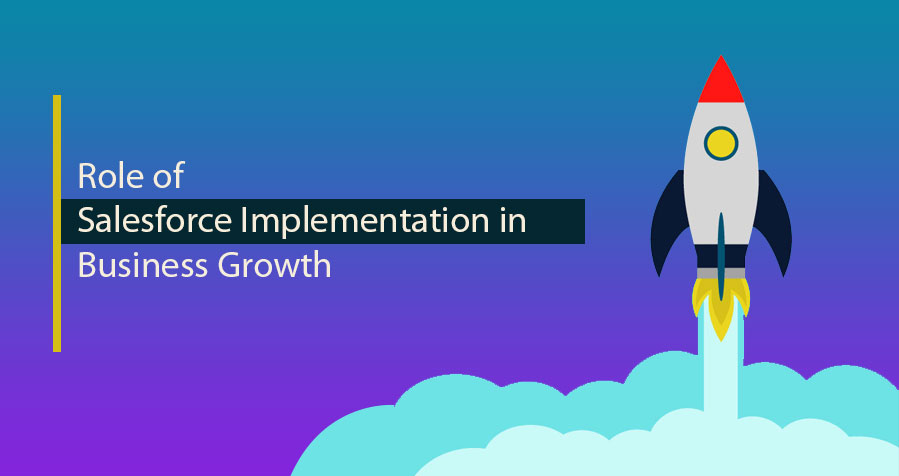
- Opportunities may have quotes, proposals and orders.
- Using Opportunities we can forecast sales in an organization.
- Opportunities are one of the most widely used and heavily customized objects on the platform.
Table of Contents
How do I create an opportunity in Salesforce?
- Opportunities may have quotes, proposals and orders.
- Using Opportunities we can forecast sales in an organization.
- Opportunities are one of the most widely used and heavily customized objects on the platform.
What are the pros and cons of Salesforce?
- Low risk: Low acquiring cost and low-risk management as an organization tool.
- Salesforce database helps in organizing and digitizing company sales records.
- Allows customization of profiles for individual customers, and gives quick access to individual records.
How to be successful with Salesforce?
- Analyze what the needs of the users are, then design, test, and develop software that meets those needs
- Design Salesforce solutions and create effective project plans. …
- Suggest new software upgrades for the customers’ existing apps, programs, and systems
How to add products to opportunities in Salesforce?
- Scroll down the Opportunity detail page to the Products related list and then click the Choose Price Book button. …
- Select the appropriate price book from the Price Book drop-down list and then click Save. …
- Click the Add Product button on the Products related list. …

What does opportunity mean in Salesforce?
Opportunities are deals in progress. Opportunity records track details about deals, including which accounts they’re for, who the players are, and the amount of potential sales. If your Salesforce admin has set up leads in your Salesforce org, an opportunity is created when a lead is converted.
What is the difference between a lead and an opportunity in Salesforce?
Quick Takeaways. A Salesforce lead is an unqualified contact, while a Salesforce opportunity is a likely sale. In Salesforce, a lead can be converted into a contact, an account, or an opportunity. To identify an opportunity, look for the lead’s product interest, budget, and timeframe.
How do you use opportunity in Salesforce?
2:034:16Work Your Opportunities and Manage Your Pipeline (Lightning Experience)YouTubeStart of suggested clipEnd of suggested clipYou can create new notes. Or review and update notes you’ve already written. As your deal progressesMoreYou can create new notes. Or review and update notes you’ve already written. As your deal progresses towards the proposal stage. You can choose a price book and add product looking for deeper detail.
What is an opportunity in a CRM?
Opportunities (or Potentials in some CRM systems) are a way of managing the piece of business, rather than an individual or company. It is the deal you think you might make and exists to hold the detail of the potential sale. And it’s where your team’s sales skills will really come into their own.
What are opportunities in sales?
A sales opportunity is a source of potential business – it’s literally an “opportunity” to offer your product or service to an interested individual or business, and represents an “opportunity” for revenue. Generally, an opportunity comes from one of two places: A lead, or a potential customer, or.
Which comes first lead or opportunity?
Lead management is a preliminary stage where you try to get an individual interested in your brand. Opportunity management is the later stage where you have interested leads, and they are ready to make the purchase.
What is a lead vs opportunity?
A Lead is a person who is a sales prospect. An Opportunity is the specific sales deal being pursued including the estimated dollar amount. The Opportunity record will be related to the Lead or Contact record of the person with whom you are hoping to do business.
What is the difference between a contact and an opportunity?
What is an opportunity? Once a contact engages with your sales team and expresses interest they should be qualified by a sales rep. If they are determined to be a qualified contact who would fit well as a customer, a sales contact officially becomes a sales opportunity.
What is account and opportunity in Salesforce?
Account: Specifically, a business entity or organization you intend to sell to whose information is in your database. You may have multiple contacts stored who are all part of the same account. Opportunity: In Salesforce, an opportunity is a deal in progress.
What is a opportunity system?
An opportunity management system (OMS) is a system that provides information on sales leads or opportunities, along with other supporting information.
What is the difference between lead and opportunity in Dynamics CRM?
Leads are potential or prospective customers. Opportunities are not a specific customer, such as a lead, contact, or account, and therefore require a customer record to be added to the opportunity. Customers can be accounts, contacts, or leads.
What is the difference between leads and opportunity?
A Lead is a person who is a sales prospect. An Opportunity is the specific sales deal being pursued including the estimated dollar amount. The Opportunity record will be related to the Lead or Contact record of the person with whom you are hoping to do business.
Can you create an opportunity without a lead?
You cannot have an Opportunity without an Account. Accounst and Opportunites have a Master-Detail relationship, whether they’re created via a Lead convert or created manually. That’s an SFDC system requirement.
What is a lead in Salesforce?
In Salesforce, a lead is the default object that is created when you receive new contact information in your database. Leads can be imported, but they can also be created automatically through external marketing automation platforms, as well as by form submissions and other inputs.
How do I convert a lead to opportunity in Salesforce?
To convert a lead to opportunity in salesforce go to Lead Tab.Now select the lead that to be converted to opportunity.Click convert .Enter the name for the opportunity, Enter subject name, priority and select status.Select Convert.After select convert button now we are taken to Account page as shown above.
Fields
If you are uploading opportunities using API version 15.0 or earlier, and one of the opportunities in the batch has a partner user as the owner, the Partner Account field on all opportunities in the batch is set to that partner user’s account regardless of whether the partner user is the owner.
Usage
Use the Opportunity object to manage information about a sale or pending deal. You can also sync this object with a child Quote. To update an Opportunity, your client application needs “Edit” permission on opportunities. You can create, update, delete, and query Attachment records associated with an opportunity via the API.
Associated Objects
This object has the following associated objects. Unless noted, they are available in the same API version as this object.
Additional Considerations
If you set Stage and Forecast Category, the opportunity record contains those exact values.
What is Salesforce funnel?
One of the most fundamental aspects of the Salesforce funnel is the correct assignment of a Lead, Account, Contact and Opportunity. It is also one of the most misunderstood features for most firms setting up Salesforce for the first time. While every firm will have their own set of rules to determine what constitutes a Lead and an Opportunity, this post will attempt to provide some general rules around when to treat something as a Lead and when to convert it into an Opportunity.
What is an account in Salesforce?
An Account is just the actual business or company, and the Contact is the person – the same person from the Lead. Where Salesforce confuses a lot of people is in the name Account. So many sales people call their book of business their “accounts”. They assume an Account is a business they’ve sold something to in the past.
Is Salesforce a qualified lead?
The key behind Salesforce’s architecture, lies in how you treat a Lead that has the potential to become a deal…one day. At some point, the Lead can no longer be considered a Lead and it should be classified as either qualified, or not qualified. In the case when a Lead is qualified, it should be converted.
Is Salesforce a tool?
Remember, Salesforce is Just a Tool. At the end of the day, Salesforce is simply a tool. A tool that is designed to take your existing business/sales processes, and embed them within its framework. Salesforce on its own won’t make salespeople sell more.
How does Salesforce deal progress?
In Salesforce, an opportunity moves through a series of stages linked to the types of tasks being performed , and the likelihood of completing the sale.
What is contact role?
Contact roles on opportunities tell you which contacts you’re dealing with and how each contact is related to the opportunity. You can also use contact roles to link contacts from other accounts to the opportunity.
Pros and Cons Of Salesforce Leads vs Opportunities
Salesforce leads are typically generated from websites or offline channels that connect you with potential customers. Opportunities are generated from the Salesforce CRM platform and usually require more engagement than leads.
When To Use Leads
Leads, which are generated by salesforce, can be used to get the attention of a lead. Lead generation is also commonly used in marketing and advertising as an approach to create awareness of your brand or product.
How does one create a Lead with Salesforce Leads vs Opportunities?
Salesforce Leads are a useful tool for your sales team to track leads and convert them into opportunities. The first step is to create a lead in Salesforce.
Conclusion
It is a salesforce lead opportunity. It means someone has shown interest in a product or service, and has expressed that they are interested in buying it. Salesforce is a software company that provides many tools to help sales professionals grow their business.
When does an opportunity show up?
An opportunity shows up when a lead and your business are a perfect match. Converting a lead to an opportunity should be a data-driven decision, so you can avoid issues along the way, for example, focusing on non-sales opportunities that eat up your sales reps’ time.
What does Salesforce account mean?
An account indicates a business entity or an organization you plan to sell to. Each account can have many contacts, and you store all the information about them in your database.
What is lead process in Salesforce?
Lead process: The process of creating, nurturing, and transferring new leads to sales reps to convert them into opportunities. What is an opportunity in Salesforce? A Salesforce opportunity isn’t a person or a business entity. It’s a potential future sale for an account you want to work on or track.
What is Salesforce lead?
A Salesforce lead refers to any lead you’ve captured from your website, a paid ad, an online quiz, a social media contest, or a phone call. Not all leads are the same—some are more likely to purchase your products while others may not, so it’s up to your sales reps to qualify them.
What is lead qualification in Salesforce?
Lead qualification: The process of determining if a lead is qualified or how likely a lead is to turn into a paying customer. Lead status: A status assigned to each lead. Four types of lead statuses exist in Salesforce, including Open, Contacted, Qualified, and Unqualified. Lead process: The process of creating, nurturing, …
Is there a one size fits all answer to convert a lead to an opportunity in Salesforce?
Every business may have a different process to qualify leads and identify real opportunities. That’s why there is no one-size-fits-all answer when it comes to when you should convert a lead to an opportunity in Salesforce. However, there are two standard rules to keep in mind when defining this process.
